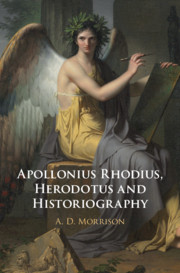5 results
10 - Co-Production and Populism
- from Part IV - Masses, Media, and Popular Judgment
-
- Book:
- The Making Sense of Politics, Media, and Law
- Published online:
- 06 April 2023
- Print publication:
- 13 April 2023, pp 209-229
-
- Chapter
-
- You have access
- Open access
- HTML
- Export citation
Chapter 8 - Arguing over Text(s): Master-Texts vs. Intertexts in the Criticism of Lucretius
- from Part IV - Literary and Philosophical Sources
-
-
- Book:
- Approaches to Lucretius
- Published online:
- 25 June 2020
- Print publication:
- 16 July 2020, pp 157-176
-
- Chapter
- Export citation
Chapter 3 - Common Ground in Lucretius’ De Rerum Natura
- from Part II - Lucretius and his Readers
-
-
- Book:
- Approaches to Lucretius
- Published online:
- 25 June 2020
- Print publication:
- 16 July 2020, pp 59-79
-
- Chapter
- Export citation

Apollonius Rhodius, Herodotus and Historiography
-
- Published online:
- 13 January 2020
- Print publication:
- 30 January 2020
Phemius Suite
-
- Journal:
- The Journal of Hellenic Studies / Volume 134 / 2014
- Published online by Cambridge University Press:
- 09 December 2014, pp. 89-102
- Print publication:
- 2014
-
- Article
- Export citation

